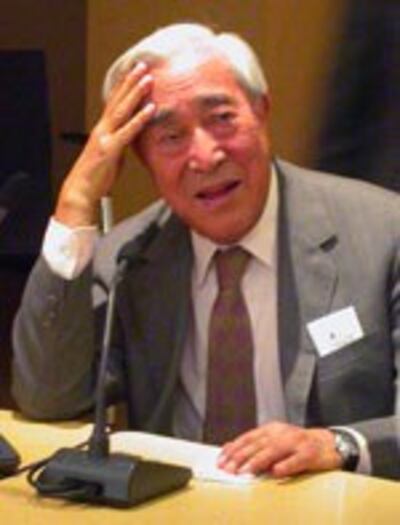
WASHINGTON—Gyalo Dhondup, a brother of Tibet’s exiled spiritual leader the Dalai Lama, has lashed out at what he calls a “major shift in attitude” towards Tibet among Chinese officials.
Chinese officials have launched an unprecedented wave of criticism of His Holiness the Dalai Lama from May this year.
“Chinese officials have launched an unprecedented wave of criticism of His Holiness the Dalai Lama from May this year,” Gyalo Dhondup said during an extended call-in program on RFA’s Tibetan service.
“This is a major shift in their attitude, unprecedented in the past 27 years of contact with Chinese officials,” he said.
Gyalo Dhondup has made a number of visits to China in recent years in an attempt to broker talks between China’s leaders and the Dalai Lama, who fled the Himalayan kingdom after a failed uprising against Chinese rule in 1959.
Views on his contacts with Beijing are mixed among Tibetans in exile, with some saying he fails to represent Tibetan interests, and others appreciating his attempt to broker a reconciliation.
“I told Chinese officials that it is wrong. It will hurt Tibetans. There was even more criticism of His Holiness in July and August this year,” said Gyalo Dhondup, whose remarks were more pessimistic about future dialogue with Beijing than at any time in recent years.
Shift at every level
He said the criticisms came from Chinese politicians including officials of the Communist Party’s United Front department, which is in charge of maintaining social and political cohesion with China’s ethnic minority groups.
“Even the Chinese officials of the Tibetan Autonomous Region (TAR). Even ordinary Tibetan officials of the TAR were criticizing the Dalai Lama,” he added.
Gyalo Dhondup visited China and some parts of Tibet in a trip in May and June, but he wasn’t allowed to go where he wanted.
After requesting a leisurely visit to the Tibetan heartlands, he was taken on a tour of northern and southern China, and only two peripheral areas with Tibetan populations.
He said he had asked repeatedly for an explanation from Chinese officials of their harsher tone, but none had been forthcoming.
“I am extremely worried and concerned about this shift in attitude of Chinese officials. All the past Chinese leaders such as Deng Xiaoping, Jiang Zemin, Hu Yaobang, and Zhao Ziyang and even the past heads of the United Front never criticized the Dalai Lama in this manner,” he said.
Banned in China
“In fact, Deng Xiaoping and Hu Yaobang talked about the importance of the Dalai Lama. They were very farsighted and broadminded. They realized that the Dalai Lama is crucial and precious.”
“He should visit China. This would help both China and Tibet,” Gyalo Dhondup said.
The Dalai Lama fled Lhasa in 1959 after an unsuccessful revolt against Chinese rule. He leads the Tibetan government-in-exile in Dharamsala, India, but Beijing has ruled him out of Tibet’s future.
Images, writings, and video of the Dalai Lama, who is universally revered by Tibetans, are banned in much of the traditionally Tibetan areas under Chinese control, and those found in possession of them typically receive prison sentences.
The Dalai Lama has accused the Chinese authorities of carrying out “cultural genocide” in the Himalayan region, and many Tibetans complain of ethnic discrimination following the mass migration of Han Chinese to the region amid growing economic development.
Original reporting by RFA’s Tibetan service. Director: Jigme Ngapo. Translated and edited by Karma Dorjee. Written for the Web in English by Luisetta Mudie and produced by Sarah Jackson-Han.
